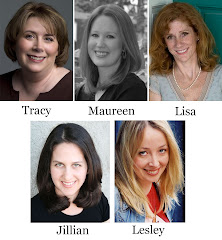I know I should, but when I’m writing, my mind just doesn’t want to work that way. It doesn’t want to organize, outline or try to plan ahead. Truthfully, I’m more of a character driven writer, so plot never comes easily to me, and there is generally no rhyme or reason to my plotting, at least in my first drafts. I almost always start a book with an idea, a specific scene, a few characters in my head. The inciting incident must be entirely clear to me before I begin writing. And then I just sort of go from there, figuring it out piece by piece, chapter by chapter, as I go along. Usually, I’ll have a vague idea of where the climax or second turning point of the book might be, and I’ll write towards that. But often, that idea changes as I go along.
Then when I’m finished with the first draft, and it’s time to revise, I try to go back to that screenwriting structure and think about my book in these terms. I read through the book and see if I can identify the acts and if the turning points are clear (or there at all). I figure out what the central question actually is and see if it’s answered by the end and set-up consistently throughout the book. On the very, very rare occasion, I find my book has fallen into place, with all of these things seemingly in tact. But usually that’s not the case, and I begin a massive revision. In fact, the majority of my revisions between my first and second drafts focus on plot rather than character development.
So I guess I’m a messy, disorganized plotter. But that isn’t always a bad thing. Sometimes I’ll write a scene that seems random, and then fifty pages later, it’ll make sense that that scene was actually crucial for setting up something later in the book. In other words, when I let what I'm writing simmer in my subconscious long enough, I have a strange way of figuring the plot out and getting it to all make sense. This is what I like to think of as a plot gift, and given my sometimes awful relationship with plotting, I take all of them that I can get!


6 comments:
This is really nice info you have mention in your blog about to the Messy Plotting.I really don't know about these books before reading your nice blog.Keep up it i am looking forward more info about it.
Great info for me, Jill. Thank you. We can always count on our Novel Girl MFA! See how great that is!
Thanks for stopping by, Umera.
And Lisa, I'm glad you found this helpful/coherent. I really had trouble figuring out how I plot because it's usually something close to disastrous!
Your post actually came at the perfect time--I used your 3 act suggestions today in my Book #2 Edits of Death.
I LOVE plot gifts! Love it when you get to the point where you're saying "oh - THAT's why I wrote that bit fifty pages ago!"
Our process is similar, Jill...and I love it when something I've written (usually with no clue why) layers beautifully into a plot point I also had no clue was going to happen. Fun!
Post a Comment